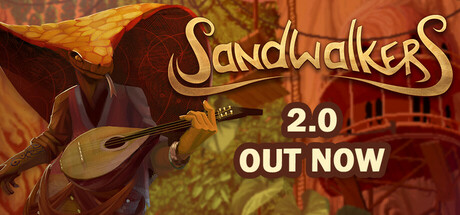Curious Expedition on Steam - User reviews, Price & Information
Curious Expedition is a roguelike expedition simulation set in the late 19th century. Together with famous personalities you will venture on unprecedented expeditions to regions never explored before for fame, science and treasures.
Curious Expedition is a exploration, rogue-like and pixel graphics game
developed and published by Maschinen-Mensch.
Released on September 02nd 2016 is available on Windows, MacOS and Linux
in 14 languages: English, German, Traditional Chinese, Simplified Chinese, French, Italian, Korean, Polish, Spanish - Spain, Russian, Portuguese - Brazil, Ukrainian, Japanese and Turkish.
It has received 4,244 reviews of which 3,872 were positive and 372 were negative resulting in a rating of 8.8 out of 10. 😎
The game is currently priced at 1.49€ on Steam with a 90% discount.
The Steam community has classified Curious Expedition into these genres:
Media & Screenshots
Get an in-depth look at Curious Expedition through various videos and screenshots.
System requirements
These are the minimum specifications needed to play the game. For the best experience, we recommend that you verify them.
- OS *: Windows 7
- Processor: 2 GHz
- Memory: 1 GB RAM
- Graphics: 1280x720 minimum resolution, OpenGL 2.0 Support, recommended dedicated graphics card with 128 MB of RAM
- Storage: 150 MB available space
- OS: Mac OS X 10.6 or above
- Processor: 2 GHz
- Memory: 1 GB RAM
- Graphics: 1280x720 minimum resolution, OpenGL 2.0 Support, recommended dedicated graphics card with 128 MB of RAM
- Storage: 150 MB available space
- OS: Ubuntu 12.04 LTS, fully updated
- Processor: 2 GHz
- Memory: 1 GB RAM
- Graphics: 1280x720 minimum resolution, OpenGL 2.0 Support
- Storage: 150 MB available space
User reviews & Ratings
Explore reviews from Steam users sharing their experiences and what they love about the game.
Similar games
View allCurious Expedition 2
Curious Expedition 2 is a turn-based narrative roguelike set in a reimagined version of the late 19th century that uses procedural gameplay and story elements to create completely unique and epic adventures every time you play.Bingle Bingle
Bingle Bingle is a 'Roulette Builder' game where you can create your own Roulette. Strategically combine various betting options and unique balls to create synergies, earn extreme scores, and beat the casino.Scarlet Tower
Hunt during the day, be hunted during the NIGHT! Scarlet Tower is a gothic horror casual game with roguelike and RPG elements, like talent trees, classes, familiars and more!Sandwalkers
Sandwalkers is a roguelike turn-based exploration game. Build your team, traverse varied hostile environments, face countless dangers, and gain knowledge that will help you find and resurrect the Mother Tree Umama.Dungeons of Aether
Delve into Dungeons of Aether, a turn-based dungeon crawler set in the Rivals of Aether universe. Control four new heroes as they uncover the mysteries of the Julesvale Caverns in Story Mode or test your mettle in the grueling Challenge Dungeons.Legend Creatures(传奇生物)
Legendary creature is an independent game with rich playing methods such as roguelike + self-propelled chess + strategy. You can collect all kinds of magic creatures with various talents and skills, and can also evolve to a higher level.Data sources
The information presented on this page is sourced from reliable APIs to ensure accuracy and relevance. We utilize the Steam API to gather data on game details, including titles, descriptions, prices, and user reviews. This allows us to provide you with the most up-to-date information directly from the Steam platform.
Additionally, we incorporate data from the SteamSpy API, which offers insights into game sales and player statistics. This helps us present a comprehensive view of each game's popularity and performance within the gaming community.
Last Updates| Steam data | 14 April 2025 20:11 |
|---|---|
| SteamSpy data | 11 April 2025 17:53 |
| Steam price | 15 April 2025 20:46 |
| Steam reviews | 14 April 2025 15:48 |
If you'd like to dive deeper into the details about Curious Expedition, we invite you to check out a few dedicated websites that offer extensive information and insights. These platforms provide valuable data, analysis, and user-generated reports to enhance your understanding of the game and its performance.
- SteamDB - A comprehensive database of everything on Steam about Curious Expedition
- SteamCharts - Analysis of Curious Expedition concurrent players on Steam
- ProtonDB - Crowdsourced reports on Linux and Steam Deck Curious Expedition compatibility




















































